From the West Hartford Archives: West Hartford in World War I

Audio By Carbonatix
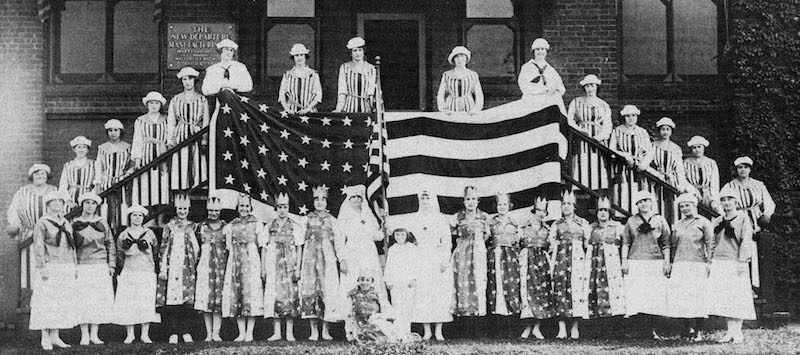
Women polishers at the New Departure Manufacturing Company plant during the war. Photo courtesy of Noah Webster House & West Hartford Historical Society
Historian Jeff Murray takes a look into West Hartford’s past to uncover some surprising information, stir up some memories, or reflect on how much life has changed – or hasn’t changed at all. Enjoy this week’s ‘From West Hartford’s Archives’ …
By Jeff Murray
West Hartford contributed to the effort in World War I, but it also deeply impacted this town and its people. When World War I broke out in Europe in the summer of 1914, the United States saw it as a distant conflict and President Woodrow Wilson emphasized staying far away from intervening on either side.
Woodrow had taken office in March 1913 with a progressive reform agenda, focusing on domestic issues like economic regulation, labor rights, and banking reform. The U.S. economy was booming, fueled by industrial expansion, railroads, and global trade. American banks and businesses had growing ties to Europe, especially with Britain and France, but beyond a few imperial wars a decade and a half before (like the Spanish-American War), the U.S. was not a dominant global power in military affairs. In fact, the biggest foreign conflict the U.S. was finding itself attached to was the Mexican Revolution that was in full swing down south, and Wilson oversaw the U.S. occupation of the Mexican port of Veracruz in April 1914 to prevent further instability.
At least one resident of West Hartford, Effie Staples (her husband laid out Staples Place off Farmington Avenue around this time) attended Wilson’s inauguration. Some of the residents of a new street south of Farmington Avenue petitioned to name it “Woodrow Street,” which was swiftly approved.
While the U.S. was focused on the Mexican Revolution and implementing the newly created Federal Reserve system, tensions in Europe were rising. The heir to the Austro-Hungarian throne was assassinated in Sarajevo by a Serbian nationalist on June 28, 1914, triggering a chain of alliances and threats known as the July Crisis. As important as this series of events was to world events, the people of West Hartford essentially did not follow the events with any consistency. The front page of the Hartford Courant that July were all about domestic news and political developments in Mexico.
By the end of the month, headlines began noting that another Balkan War was on the horizon (there had been two before this). On July 28, 1914, Austria-Hungary declared war on Serbia, setting off a domino effect as Germany backed them; Russia backed Serbia; and France and Britain entered the war against Germany and Austria-Hungary. By early August, much of Europe was engulfed in conflict. The United States wouldn’t join for another three years, but this news shocked West Hartford and caused anxiety in those affected.
Selectman Carl Sternberg, Jr., whose father Adolph had come to West Hartford from Germany in the 1850s as a young boy, rushed to New York to meet his mother and three aunts, who were sailing back home from a visit in Belgium. Banks in neutral Belgium were overwhelmed with people trying to withdraw their money and the family had difficulty getting access to their funds. As Americans pushed to leave Europe, costs of ship cabins skyrocketed and rooms had to accommodate sometimes a half dozen people. They made it out just in time – less than a week after they left Belgium by way of Antwerp, Germany invaded and occupied the country.
Stoddard Lane, whose family lived on the Boulevard, was studying in Germany during the summer and by the middle of August, he wasn’t heard from in the immediate aftermath, stirring anxieties among his parents and siblings (he would return safely by October, with many stories to tell of money troubles and the bitter feelings of the people of Central Europe).
The town engineer Algernon Alderson’s brother Harry set sail for England to serve in their engineering corps. George Thayer, president of the YMCA and influential figure in West Hartford’s youth physical education, was a thrill-seeker by default and had just happened to be trekking across Europe when war broke out. Curtis Geer, whose daughter Alice had just recently wrote a prize winning essay on peace in Europe, lectured the town on developments overseas. On Aug. 31, 1914, the Courant wrote regarding West Hartford political parties: “So little interest is being taken at this time in the political field on account of the war news that little is heard from either of the parties.”
As soon as the war started, President Wilson formally declared U.S. neutrality. Public opinion was divided, with some supporting neutrality in the face of such a separated struggle and others choosing sides depending on ethnic and national loyalties to home countries. The U.S. contained trading with all nations, including Germany, but the British naval blockade made it harder to sell goods there and American banks loaned increasing amounts of money to the Allies.
By the fall, it was clear that World War I would not be a short conflict. The Business Men’s Association, the precursor to the Chamber of Commerce, discussed causes of the war (and they settled on the German desire to colonize its neighbors). The women of town contemplated organizing a West Hartford branch of the Red Cross as early as September 1914, but it was voted to work under the umbrella of the Hartford branch. Dozens of women met in the Congregational Church parsonage for all-day sewing throughout the fall for the Belgian Relief Fund to aid the civilian population under severe food shortages under German occupation. Other women’s organizations in town, like the Women’s Literary Club, fundraised for the effort.
In December 1914, the American Red Cross and related organizations sold fundraising stamps, distributing 30,000 in West Hartford across stores, like M. J. Burnham’s and Allen Judd’s drugstore. Local Americans, although neutral under the government, still demonstrated strong public support for humanitarian aid. George Thayer sent notice in December that he was in Amsterdam (safe) and had literally passed by English troops on their way to the frontlines on the Western Front. The local post office was cramped and overwhelmed by the amount of letters and postcards incoming and outgoing into 1915.
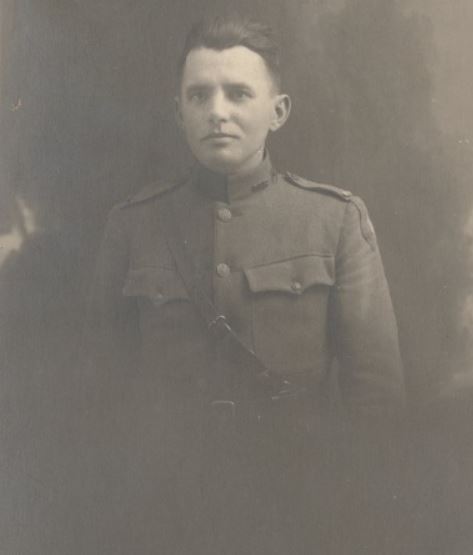
Portrait of Harold Milton Reed, c. 1917. He served in France with Company H, 102nd Infantry Regiment. Courtesy photo
In February 1915, First Church Rev. Hodgdon gave an address on the celebration of 100 years of peace between America and England, especially at a time of strengthening bonds overseas. On the other side, Germany declared the waters around Britain a war zone, threatening to sink any ship (even neutral American ones) aiding the British effort. President Wilson issued diplomatic warnings, but Germany simply ignored them.
Huntington Meech, a West Hartford civic figure, gave an address at the public library at the end of the month, arguing that Wilson had kept America out of the war but that he was weak and “too colorless to be intensively patriotic.” Business leaders worried that Germany’s submarine warfare was making trade impossible and some progressives argued that Wilson was simply too passive to unite all Americans and be ready if things went south.
These calls became stronger after a German U-boat torpedoed the British passenger liner Lusitania off the coast of Ireland in May 1915, killing 128 of 139 Americans aboard. Wilson held firm on neutrality, but pushed for a stronger Navy and Army expansion, as well as training programs for civilians. Some argued he was going too far and would drag the U.S. into war, while others argued he wasn’t going far enough. High school students joined a Hartford Preparedness parade and fundraising for relief efforts continued.
As the war continued into 1916, neutrality became increasingly difficult amid attacks on American ships, economic disruption across the Atlantic, and domestic divisions. Until the U.S. entered the war in 1917, news from West Hartford on developments died down as normal politics slipped back into the picture – sewer layouts, fire districts, tax wrangling, and politicking over the construction of the Noah Webster Memorial Library took over.
In fact, several young men in West Hartford enlisted with Troop B of the Connecticut National Guard in the summer of 1916, but that was driven by Pancho Villa’s raid on New Mexico. Many Connecticut boys would serve on the Mexican border, securing towns, reinforcing Army positions, and preventing further cross-border raids. They returned home just in time in November 1916, just as President Wilson was re-elected in a narrow presidential election, largely due to pacifist and progressive voters riding on his campaign slogan “He Kept Us Out of War.”
Two months later, Germany resumed unrestricted U-boat attacks, sinking several U.S. ships and killing American sailors. They also attempted to sway Mexico into fighting the United States. Fundraising of Red Cross seals in West Hartford skyrocketed and efforts were made to involve every woman across town to the effort. A military census was carried out, women took a more active approach to town affairs (like school board elections), and the first steps to forming a volunteer company of Home Guards were taken less than two weeks before war was declared.
George Thayer, who had been in Europe when war broke out three years before, argued it was America’s duty to enter the war and prevent the Germans from forcing their militarism on other Allied countries.
On April 6, 1917, Congress declared war on Germany. The West Hartford Home Guards turned out with about 50 members for drills. The women called a mass meeting for the formation of a unit of the National Service League for Women under Kate Scarborough.
Troops camped out at the Charter Oak Park grounds, waiting on the arrival of mules and horses from Texas. There was talk of Home Guard units having to guard the Reservoirs off Farmington Avenue. A 100-foot flagpole was raised on the center green and “Victory Gardens” were laid out across town to boost food production and show patriotism. Nettie Thomson organized a knitting class for weekly meetings for Red Cross work.
The following month, Addie Arnold and Harriet Barber, who were prominent in the work of the Daughters of the American Revolution, were appointed to help start the local Liberty Loan movement. Over $275,000 was raised in less than two months. The so-called Housewives’ Army established a community kitchen in the First Church. By the middle of the summer, Abram Chase of 118 Whiting Lane was the first to be called in the draft in a wave of one hundred. Others had already served – Jesse Colpitts of Fern Street noted that the battleship he served on in France was fired upon by a submarine.
In September, Francis Velhage, 20 years old, died after an accident as a Navy gunner on the USS South Carolina in Philadelphia. Some of the first drafted men arrived in France soon after. Back at home, a local branch of the Red Cross was formally organized at St. James’s Church under Mary Wright. A committee of citizens called for laborers from the local jails to work on the farms and relieve labor scarcity.
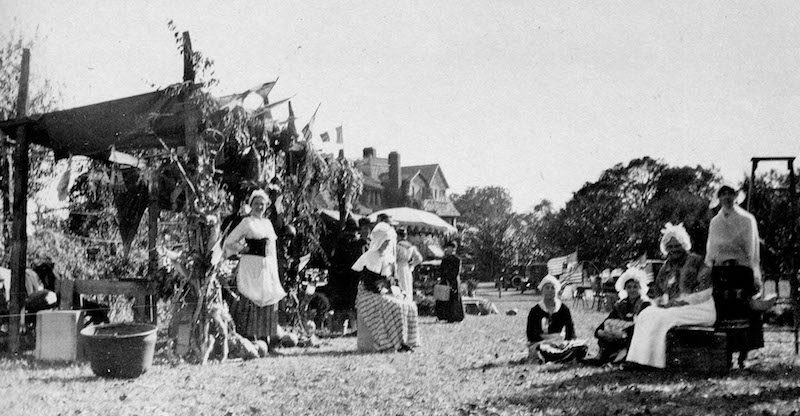
The Beach sisters organized the fundraising French market at their home on Vine Hill between Brightwood Lane and South Main Street, Oct. 1918. Photo courtesy of Noah Webster House & West Hartford Historical Society
By early 1918, U.S. forces were arriving in Europe at a rate of 10,000 per day. The Bolshevik Revolution in November 1917 had caused Russia to exit the war, freeing up German forces to focus on the Western Front, making U.S. intervention even more critical to reinforce the Allies.
A Woman’s Motor Messenger Service unit was organized by Elizabeth Duffy and Louise Kellogg, all under the Red Cross umbrella. The Secretary of the local War Bureau, Mary Buckland, wrote letters to each of the boys in the service, keeping contact with the town back home.
Of the 314 West Hartford citizens who served, 22 did not make it back. An honor roll board was constructed on the northwest corner of Farmington Avenue and Main Street with the names of the men in service. Even the high schools were affected – the 1918 graduation exercises were extremely simple in theme and design, electing to save money on decorations in favor of the Red Cross.
Women worked around the clock knitting, sewing, crafting, recruiting, and boosting morale through the summer and fall of 1918. Edith Beach, chairwoman of the Women’s Liberty Loan committee, hosted a French market on Vine Hill Farm on Columbus Day with her sisters. This event raised the equivalent of $1 million and brought out more than 1,100 people in the town to help with the effort. Beach wrote that the drive “demonstrates the adaptability of women to a class of work which has heretofore been monopolized by the men.”
The West Hartford High School principal, Walter B. Spencer, resigned in order to ship overseas. Stoddard Lane, who had been caught up in Germany as a student in 1914, served in the ambulance service in France in 1918. Sixteen Elmwood boys shipped out by the end of February.
William Grennan, a 21-year-old, died of pneumonia at Camp Devens in training. Edwin Erickson of Whiting Lane was wounded. Abraham Strauss of North Quaker Lane was reported missing with the British Expeditionary Force in France in April. Captain Walter Spencer, formerly the principal, served with the motor mechanic regiment, writing back home that the French were not frightened by German firepower. He then took to the skies in a rudimentary airplane as a flier. Walter Payne of Farmington Avenue served as a YMCA worker. Some, like Jack Ahern of New Park Avenue, wrote that he was positively enjoying life overseas in France.
Others did not. Corporal William Bulkeley of Walbridge Road returned home from France and recounted how he watched the death of an officer by a shell on the frontline. John Piper of Elmwood was gassed. David Green of North Main Street was wounded by a shell in the leg, just a few years after his high school graduation. Ernest Gustafson died at a naval hospital in Virginia. Francis Healy of New Park Avenue was killed in action in August. Bob Hayes in France sent home some souvenirs, including the hat of a dead German soldier. Less than three weeks before the end of the war, Hayes was also killed in battle. The Hayes-Velhage Post was formed in 1922 as the local American Legion unit.
On Nov. 11, 1918, the Allies and Germany signed an armistice, marking the end of the war after the Meuse-Argonne Offensive had forced them into a full retreat and pushed Kaiser Wilhelm II to abdicate. The war had transformed American industry, labor, civil liberties, and foreign policy, as well as shifted the roles of men and women in local communities like West Hartford.
What followed the return of men from Europe were difficult times – West Hartford was plagued by outbreaks of influenza (the so-called Spanish Flu); many struggled to find jobs as wartime industries reduced production; housing shortages and inflation brought on an economic recession into 1919. Rents in West Hartford skyrocketed and public anger over “unwarranted” increases boiled over often.
High unemployment, labor strikes, and race riots in other parts of the United States raised anxieties, even in Connecticut, as whites and Blacks clashed over economic opportunities and civil rights under the Wilson administration. The Attorney General launched a nationwide crackdown on radicals blamed for the unrest, deporting or arresting immigrants, labor leaders, and left-wing activists.
The Governor of Massachusetts, Calvin Coolidge, oversaw a heavy crackdown after police officers went on strike in Boston. It would win him national recognition that would catapult him to the White House in four years, lording over a country traumatized by the postwar unrest. The suffrage movement gained momentum with the increased role of women in civic affairs, leading to the passage of the 19th Amendment. Prohibition was launched soon after, resulting in an increase in bootlegging and organized crime through the 1920s.
President Wilson’s failure to compromise with the Senate effectively killed the ratification of the Treaty of Versailles and prevented the U.S. from joining the League of Nations, which was formed to prevent future wars. Of course, that didn’t pan out.
World War I had helped solidify America as a global power, but the postwar years were marked by uncertainty and unrest. At least West Hartford residents could rejoice in the months immediately after the armistice as friends and family returned home from total war.
Jeff Murray was born and raised in West Hartford and has been involved with the Noah Webster House & West Hartford Historical Society since 2011 when he was a high school student and won the Meyer Prize for his essay on local history. Jeff routinely volunteers as local history researcher uncovering information for numerous museum programs such as the West Hartford House Tour and West Hartford Hauntings. Jeff works as a data analyst at Pratt & Whitney.
Like what you see here? Click here to subscribe to We-Ha’s newsletter so you’ll always be in the know about what’s happening in West Hartford! Click the blue button below to become a supporter of We-Ha.com and our efforts to continue producing quality journalism.


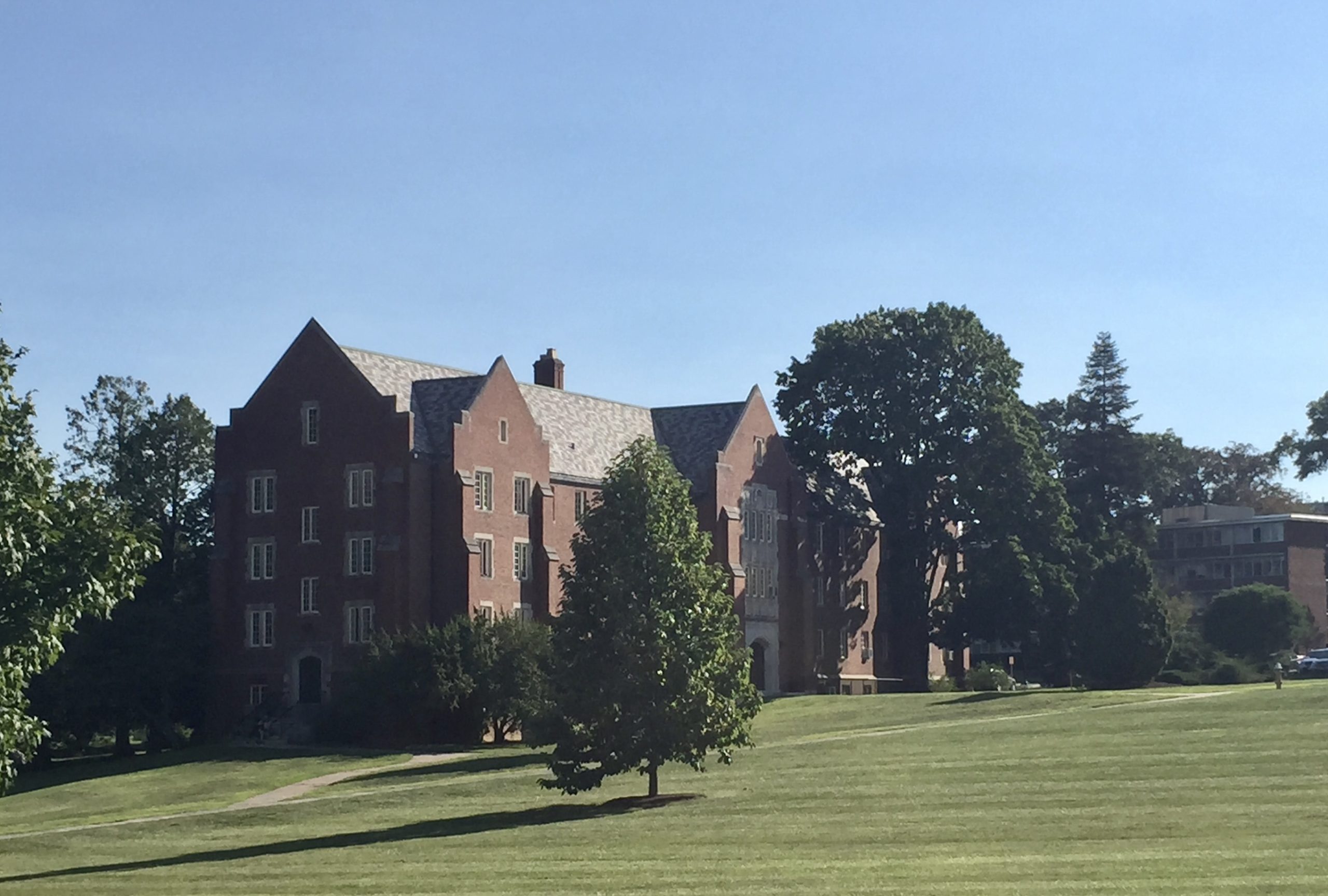
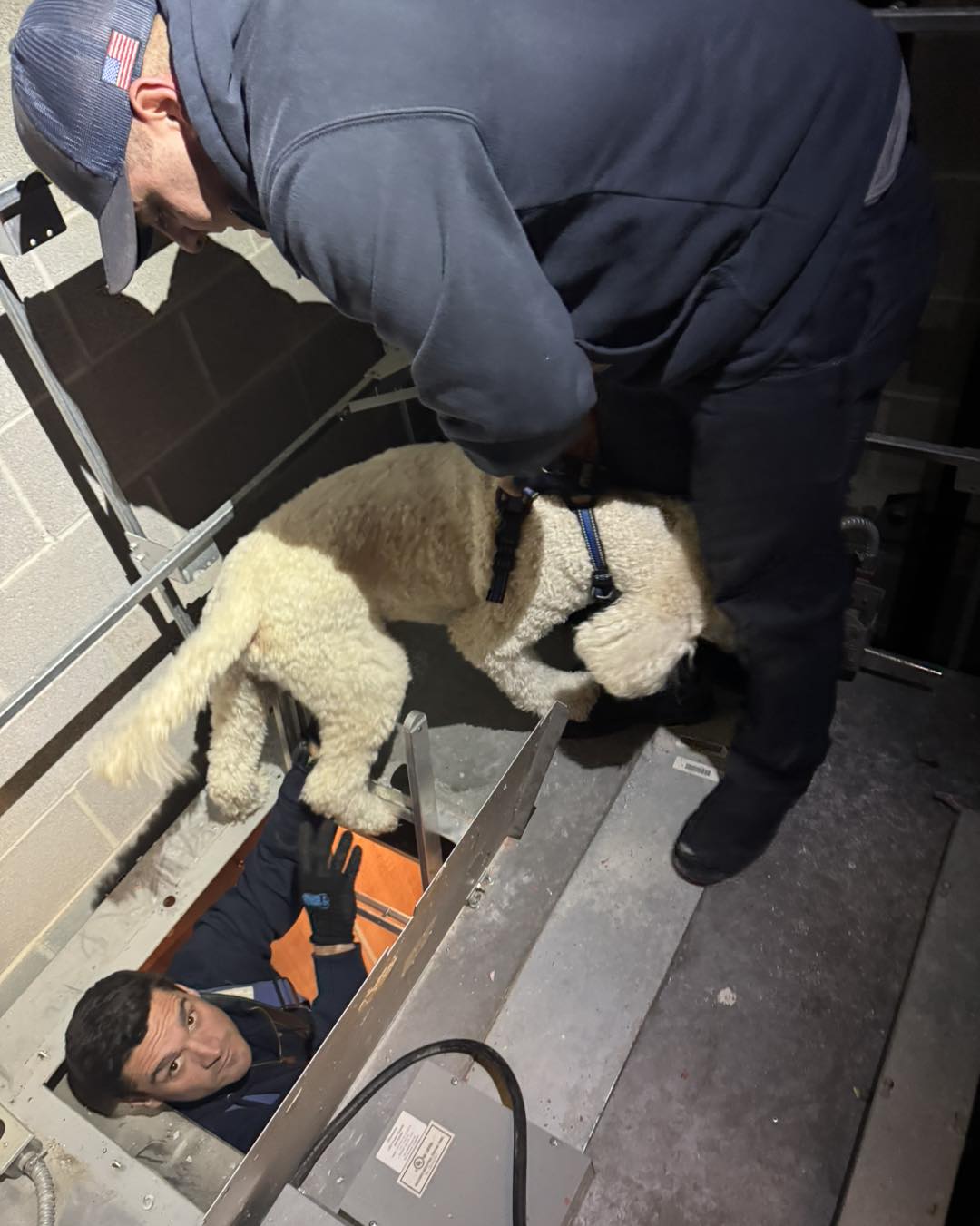
Jeff, thanks. i enjoy your columns. I recognize some of the names, worked with someone named Arnold, had a surgeon named Thayer,
and a stalwart Duffy works on my lawn and helped me build a garden. The residents of west hartford seem to have been more active
citizenry rather than a passive tax base. Too many residents pass thru town, use the schools, before taking up a more permanent life
somewhere else. Sometimes on the weekends the streets seem empty. This column is particularly interesting as we see more and more conflict around the world, nationalism on the rise everywhere, and the winds of war seem to be once again blowing this way.